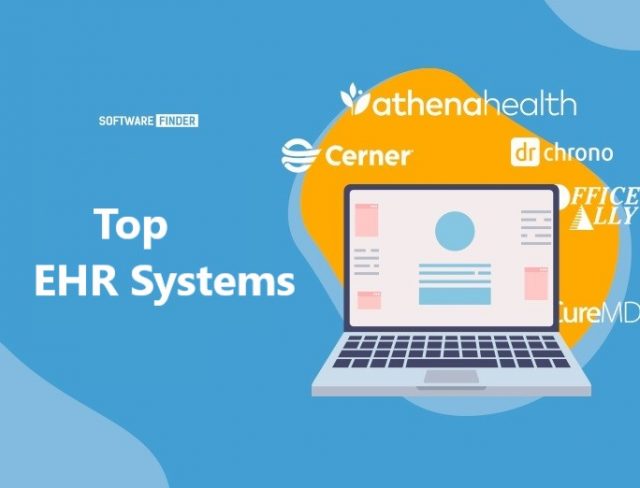When choosing between different EHR systems, you need to consider several factors. These include implementation, costs, and benefits. Additionally, you should look into the vendors and their experience. These factors will help you determine the EHR Systems if a particular system is right for your practice. If you’re unsure about the benefits and costs, you can always sign up for a free trial.
Benefits
EHR systems help physicians and health care providers make better decisions about the care of their patients. These systems enable centralized chart management, faster access to patient information, condition-specific queries, and streamlined communication. These systems are also useful for integrating scheduling and office management. Additionally, they can be linked to automate coding and insurance claims. These features can save medical professionals significant time.
There are many benefits of an EHR system, but they are not without their own limitations. One common challenge is the cost of the software and hardware. While off-the-shelf systems can be found, most hospitals opt to develop their own EHRs. Larger hospitals may not see as much benefit in automation of work flow.
Cost
In addition to improving efficiency, EHR systems help healthcare providers lower costs. By reducing the amount of paperwork and paper charts, medical professionals will have more time to spend with patients. They can also send out prescriptions and referrals faster than they would with paper forms. Furthermore, patients can easily access their medical records 24 hours a day.
EHR systems also help practices become HIPAA-compliant. In addition, EHR vendors typically provide on-site support, webinars, and support documents to help doctors and staff learn the system. They also usually handle data migration and updates for their users. It’s important to make sure that your organization understands the benefits of EHR systems and consider the pros and cons of using them in your practice.
EHR systems have been gaining popularity in the healthcare industry, with the government’s support for their use. Several studies have examined the pros and cons of EHR systems. In addition, more hospitals are looking into implementing EHR systems. A national survey of hospitals in the U.S. was conduct in February/March 2005 to assess the benefits and risks of the systems. Findings varied widely, but the most common concerns identified were privacy of patient data, interoperability, and software cost.
Implementation
Successful EHR implementation is a multidisciplinary process that requires thorough planning and detailed project management. It includes determining success criteria, designing practice workflows, and training practice staff. Careful implementation can make a practice adapt to the new system more smoothly and benefit staff and patients. Implementation teams should include clinical members who can help train new users and identify clinical challenges and obstacles. The implementation team should include a lead physician who will lead the project and act as a lead super user and project manager.
The benefits of EHR implementation are numerous and include streamlined revenue cycle and improved overall patient care. They can also help improve efficiency and reduce work pressure in health care facilities. By enabling doctors and other medical staff to access information remotely, EHRs can reduce redundancy and improve productivity. With predictive analytics, EHRs can even predict potential complications and improve patient outcomes.
Initial implementation
The initial implementation process should include defining needs, defining preferences, choosing super users, and educating staff members. Generally, the entire process should take between a month and six to eight months to complete. The implementation process for an EHR system should include these key steps: assessing current workflows, defining users’ needs, selecting hardware, and educating staff.
EHR implementation can be costly. Small clinical establishments may lack an in-house team, rarely have providers, and are likely to lack the required hardware. In addition, setting up and training an in-house team requires a considerable amount of time and money. In addition, purchasing the necessary hardware requires a significant investment.
Implementation of EHR systems. The costs may vary depending on the EHR chosen, the type of hardware and software, and the type of back-office technologies required. Additionally, implementing an EHR can reduce administrative work and improve patient care. You can check athenahealth EHR Software top software of our systems.
Vendors
In addition to the products themselves, vendors of EHR systems typically provide implementation services. The implementation team of the vendor is usually highly experience with their products, but they do not have expertise in medical practices. As a result, you must be sure that your new system is implement correctly. You should also consider whether the vendor offers live training.
EHR systems are used in many medical practices to maintain a secure, digital record of patient information. They provide evidence-based tools for medical decision-making and streamline operational workflows. Consequently, they are becoming mandatory in the U.S. and other countries. The resulting governmental push for the adoption of these systems has created a significant market for EHR vendors.
The new federal HITECH legislation provides multi-billion dollar incentives for the implementation of EHRs by healthcare providers. These incentives are helping vendors of EHR systems to boost their profits. Some vendors, like Allscripts, have doubled their sales in a year. Despite this, not all hospitals are thrill with their new EHR systems.
Implementing an EHR system is a complex process. There are still many questions about the necessary reporting and meaningful use. Thankfully, there are resources to help you get start. A good product selection tool can help you find an EHR-EMR solution that meets your specific needs. So, go ahead and evaluate EHR vendors and find the right one for your practice!
Web-Based EHR System
Depending on your specific needs, you can choose between a web-based EHR system or a server-based EHR. The former allows you to access your patient’s medical information from anywhere with a reliable Internet connection. In addition, web-based EHRs are generally less expensive than their server-based counterparts. They also don’t require a dedicated IT staff to maintain and run the system. Ultimately, your staff will be more focused on patient care instead of dealing with administrative tasks.
EHR vendors have enjoyed a boom in the last few years. Revenue at the nation’s largest health information companies is increasing at a fast pace. The rise of EHR systems has been closely watch by clinical laboratory managers. They’ve been working to integrate their laboratory information systems with EHR systems.














